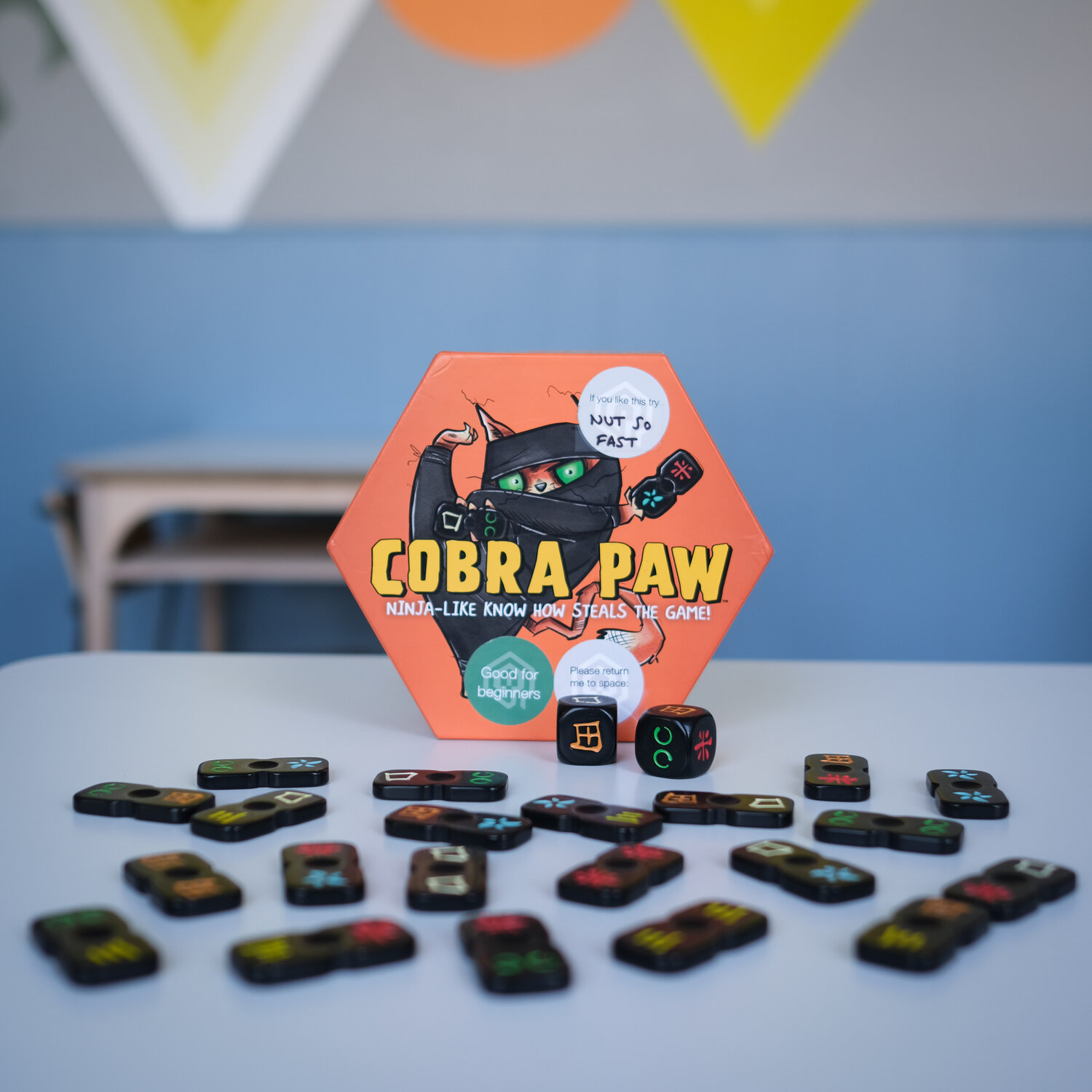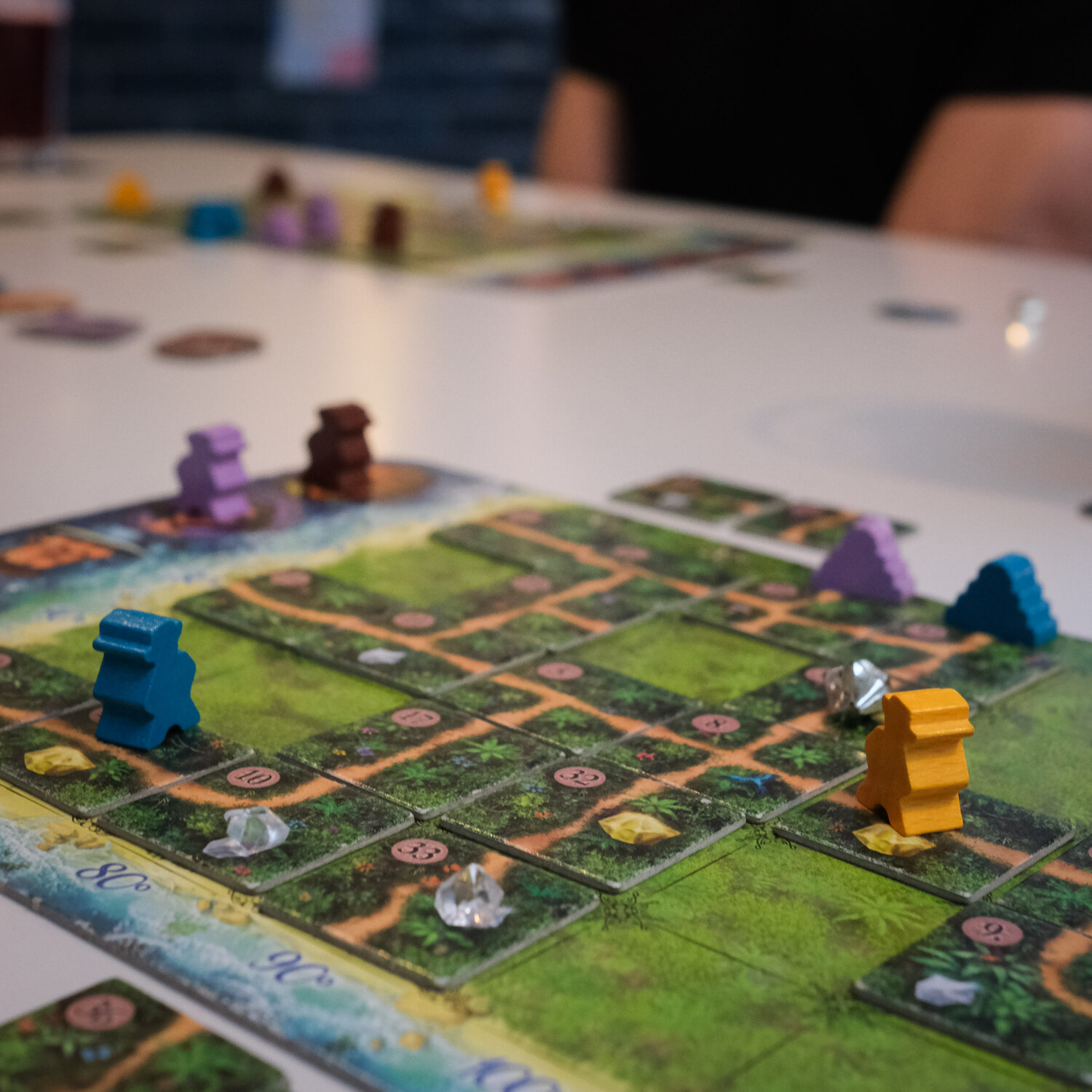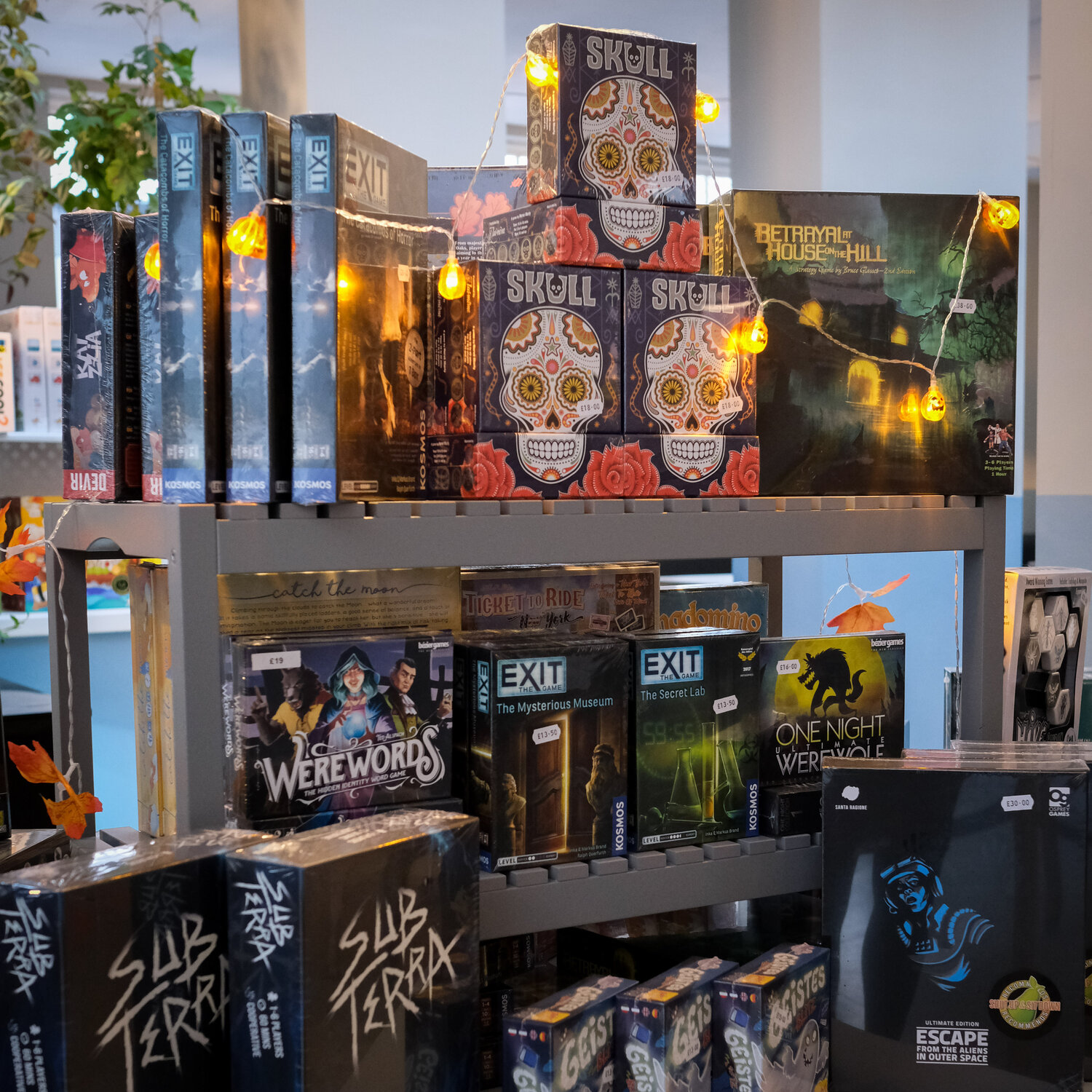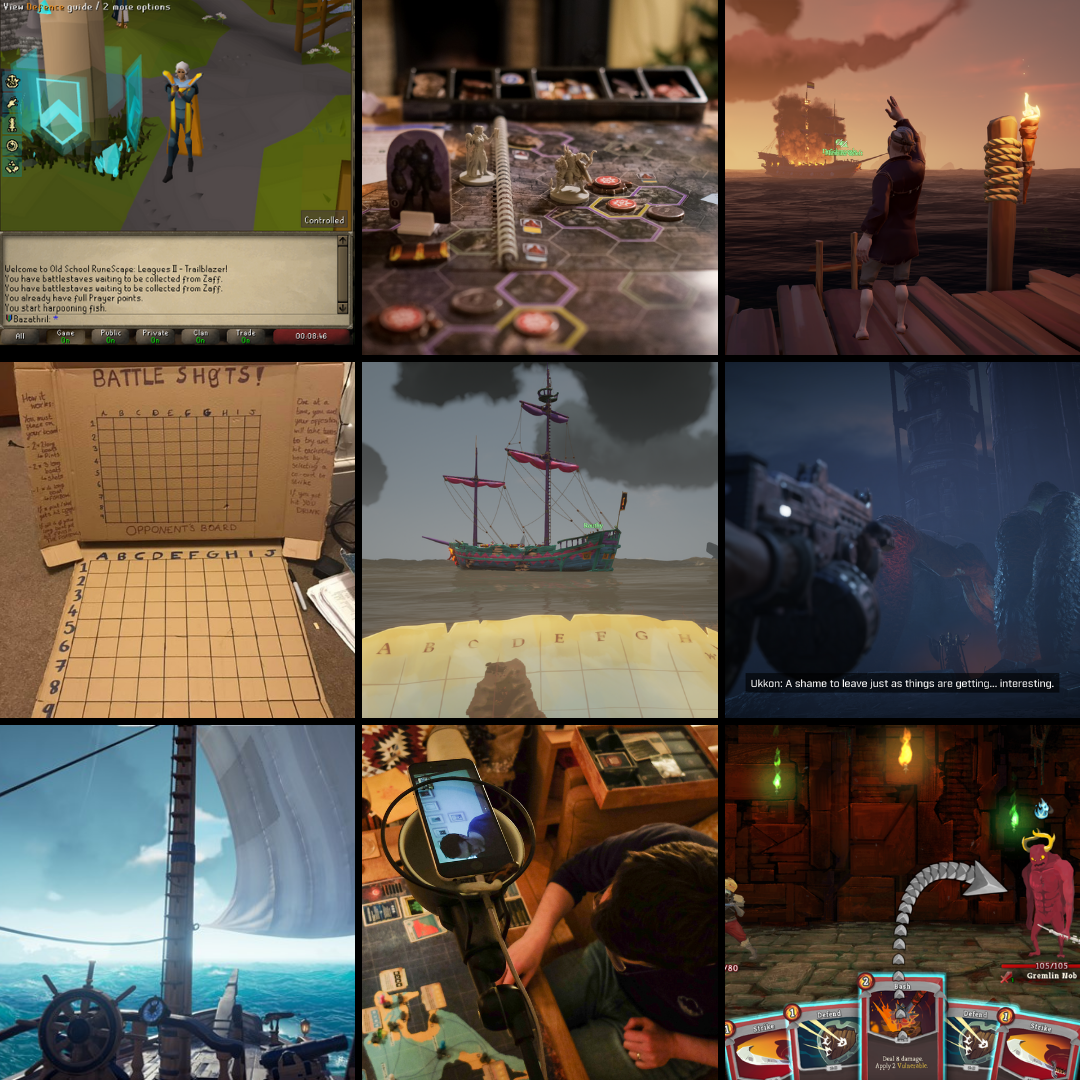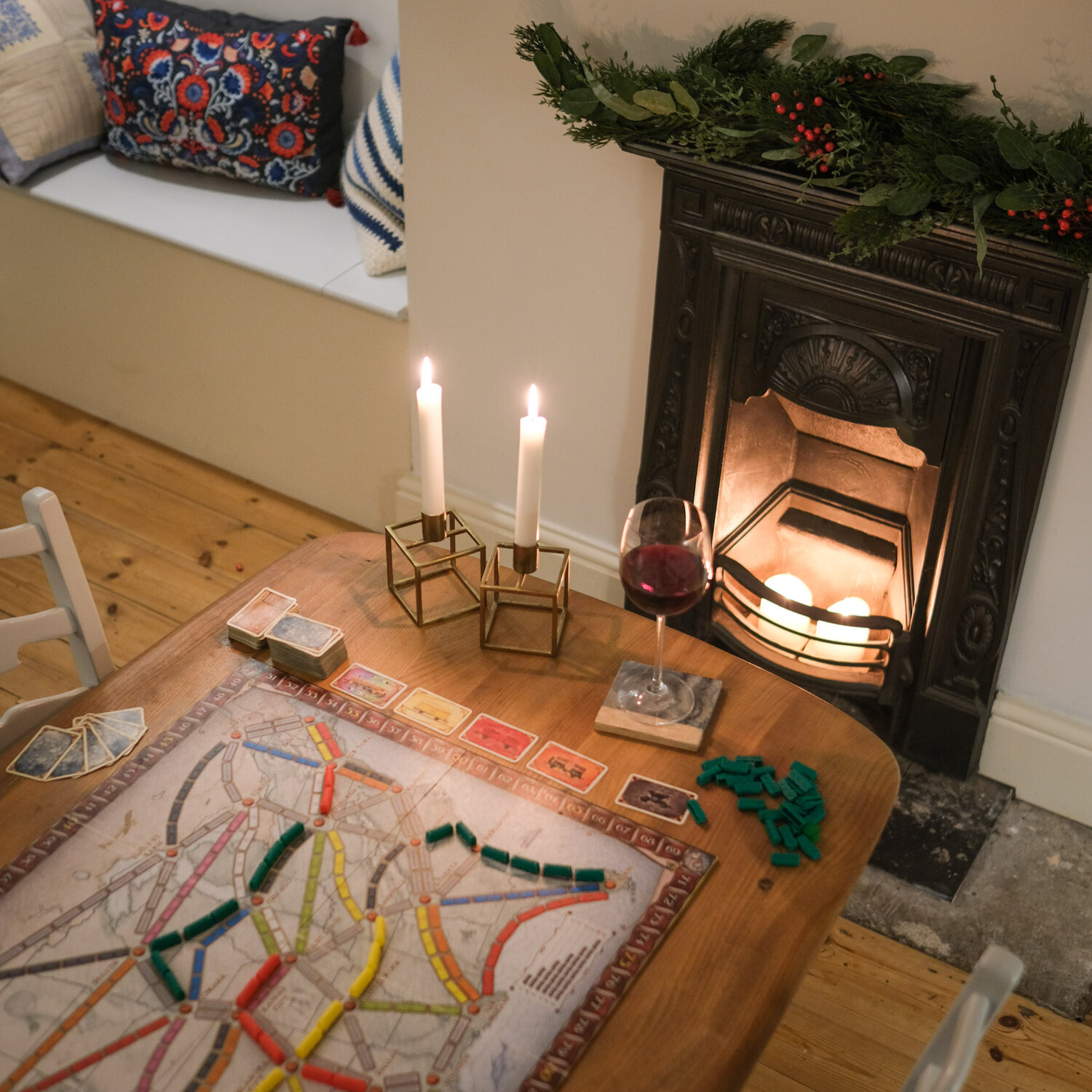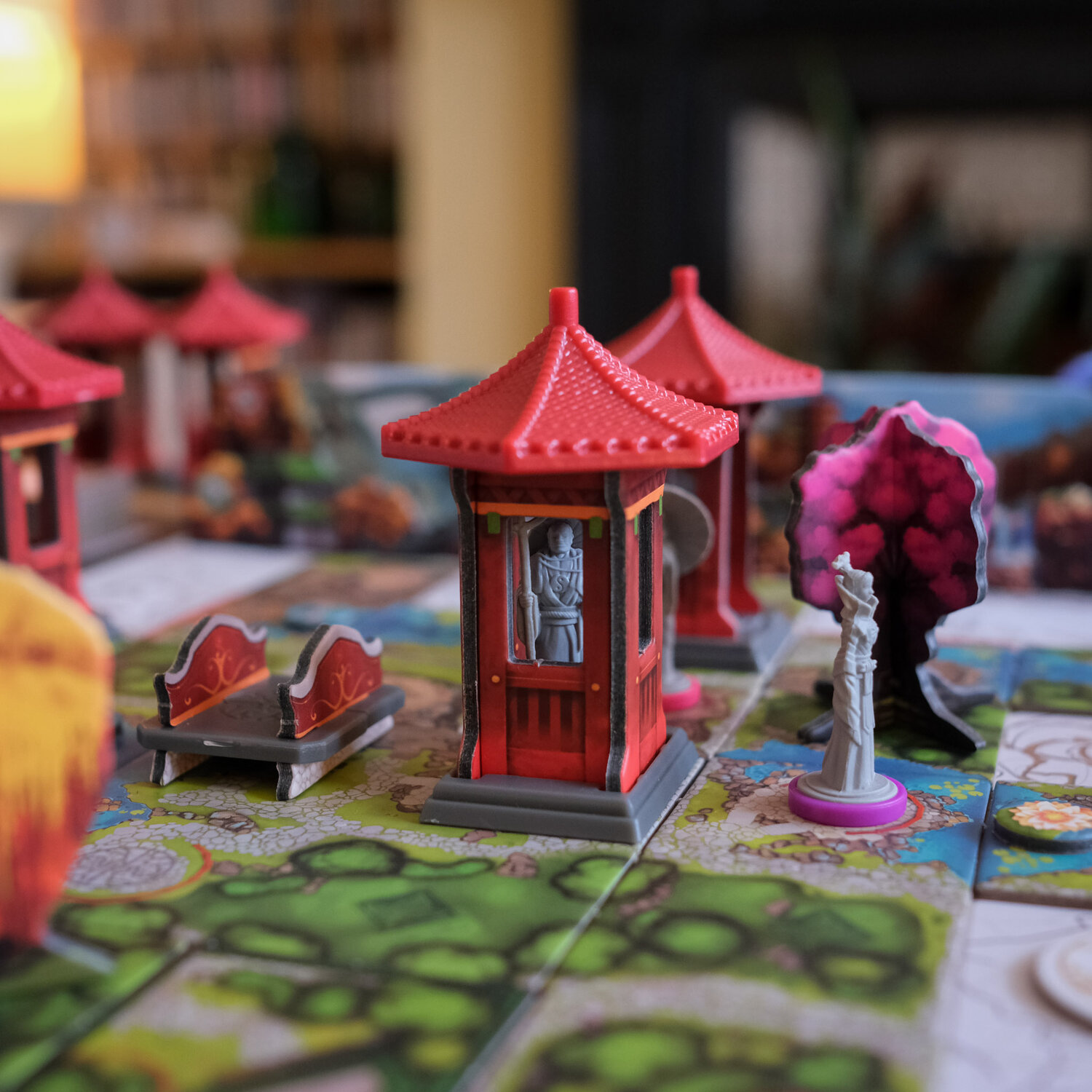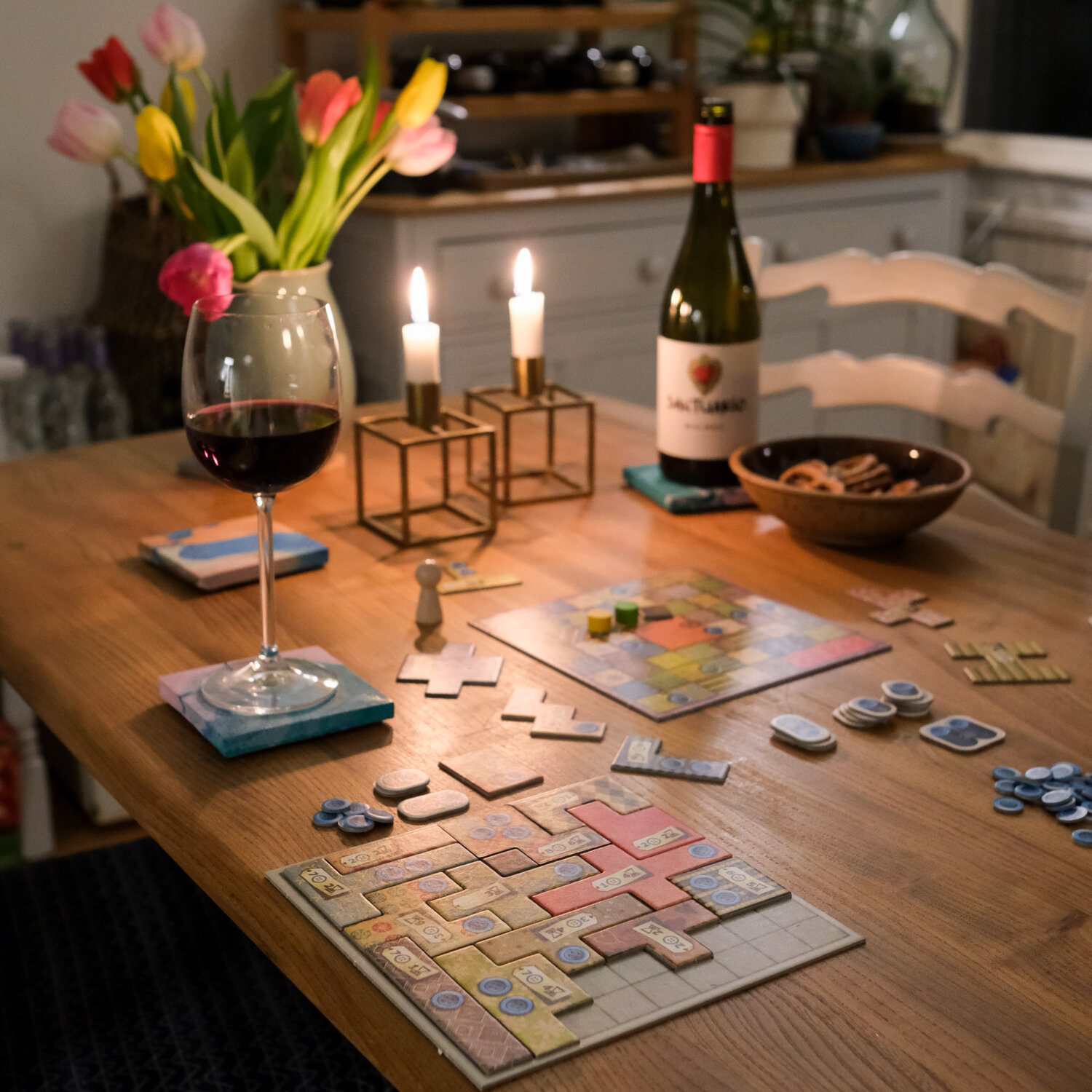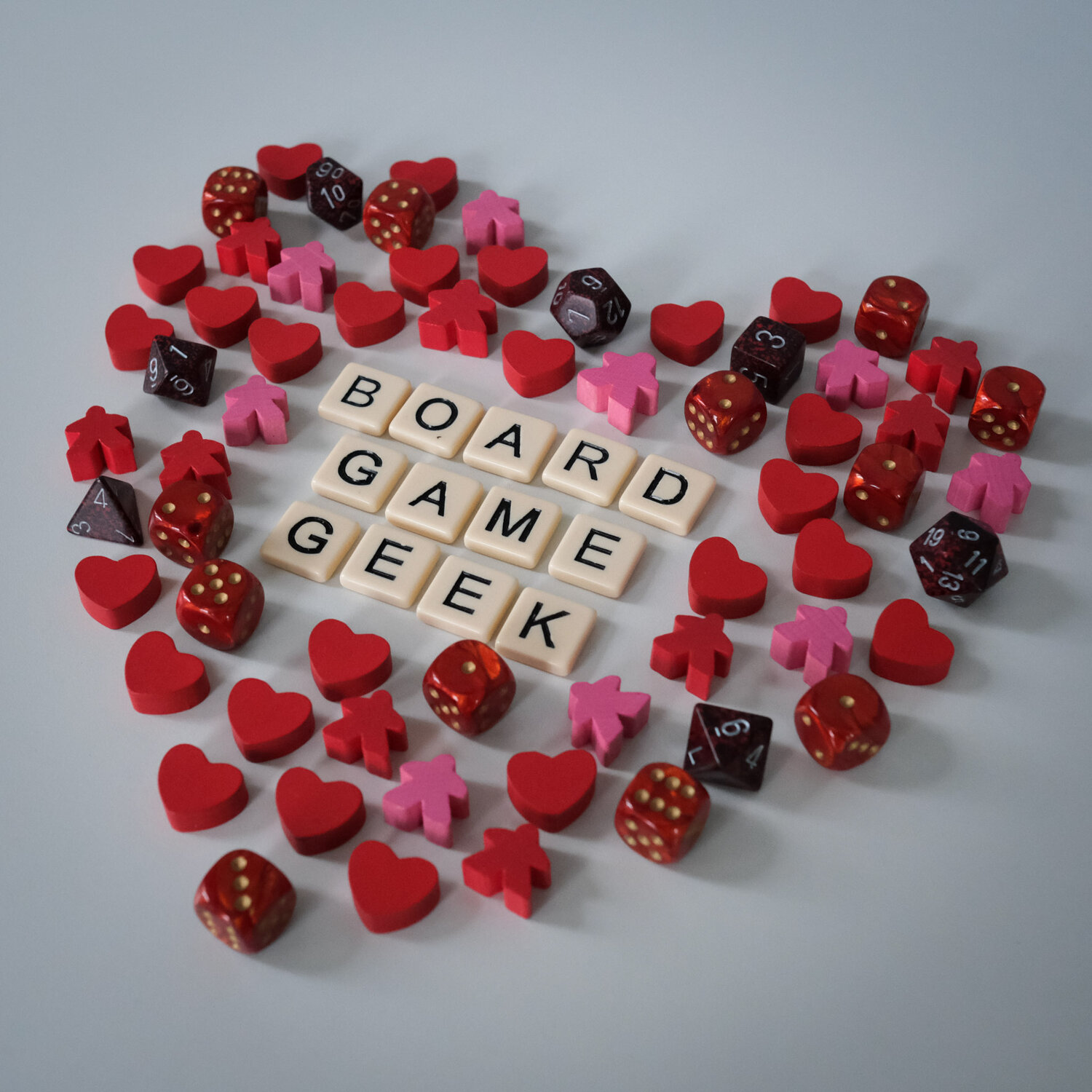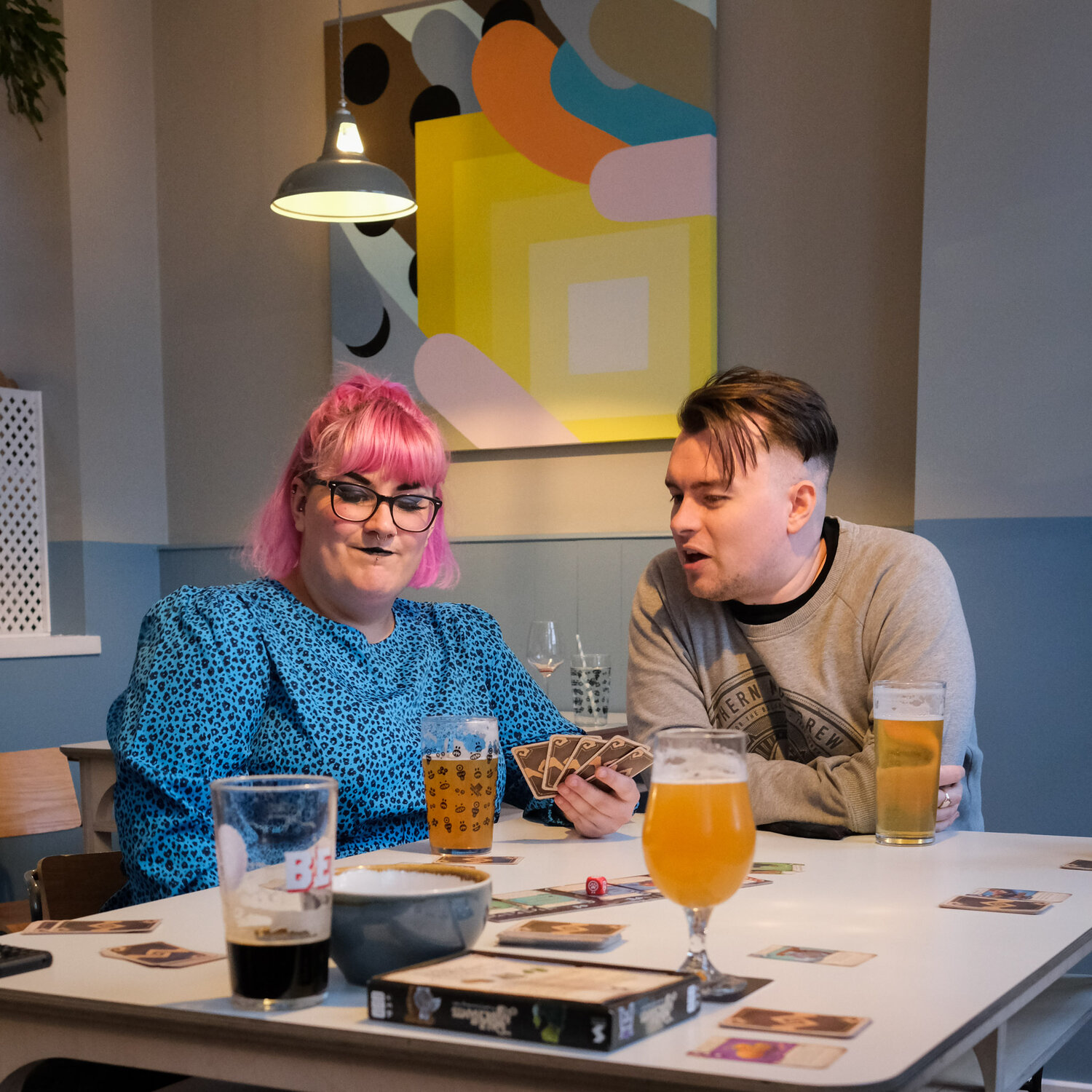Hello, and welcome to The Treehouse’s new agony aunt column!
I’m Chella, whom you may have met if you’ve visited The Treehouse before. It’s possible I taught you a party game, let you know that we had some corner brownies available in the cake display rack, or served you a Birdhouse Tea.
Now you can get to know another side of me as the arbiter of both real and theoretical board game conundrums (including whether or not there exists a board game called Conundrum – there are two!) and you can send in questions from the comfort of your own home.
More on that later. For now, I will share with you my credentials… OK, I have no ‘official’ agony aunt credentials but I have worked at The Treehouse since our opening day, witnessed a lot of gaming and played plenty of board games myself (and with others!) and in that time I have helped solve many a game-related query.
Those questions were answered in person though, and the answers drifted into the board game aether. Now, in these uncertain days as we get back to board gaming in person, we felt it worthwhile to archive future answers in the annals of gaming history as a community resource, talking point, and a bit of fun. Lofty ambitions? Probably. Over-egging the importance of this column? Almost definitely!
But that’s sort of the theme of today’s column as I present to you our first question:
Help! I’m dating a gamesplainer!
Dear Treehouse team,
Please help! I’ve started dating a perfectly decent guy. My family loves him, he is an upstanding citizen, and he is very cute. But, there is a problem. Whenever we play board games together, he has a habit of doing this thing where he goes into what I can only call “gamesplainer mode”. I am calling it this because it is quite different to the way a human person would naturally and casually explain the rules to a game.
Instead, his normally jocular and mild-mannered tone morphs into something between a gameshow host, home shopping channel salesperson, and gladiator. Suddenly, winning and losing becomes a life-and-death struggle but, crucially, not understanding the rules or making a mistake when it is my turn suddenly feels like a crime.
I love playing board games with him but I dread unboxing a new game or playing one he’s played before and I haven’t. He even does it at other people’s houses and I cringe inside when I see ‘the fear’ spreading to them. How can I tell him that he can just be himself while explaining again and we will still listen and learn the rules?
Yours sincerely,
Gamesplained in Greystones
Dear Gamesplained in Greystones,
Thank you for your excellent question.
Firstly, I very much appreciate how you have differentiated between “game explainers” and “gamesplainers”. I think we can agree (and not just because it’s my favourite part of the job) that game explainers provide a valuable service in helping people get started on a new game quickly. Some folks are delighted by a twenty-eight-page rulebook, but others will take one look at that alongside the pile of stuff that came out of the box and be grateful that someone is willing to act as their lifeline. So just to be clear, we love a game explainer.
But then there are the gamesplainers. Those who let the power of superior knowledge go to their heads. Those who enjoy explaining the game more than the players may ever enjoy eventually playing it, who dive in without checking whether people already know the rules, and may even carry on explaining what other players should do on their turns even once the game has begun, and, potentially, long after all of the guests have gone home.
It’s easy enough to dismiss this as bombast, pomposity, or desperation to remain the focal point of the game night even at the expense of irritating or belittling fellow players. If that is what’s going on though, maybe gaming together should not be in your future. And if that’s a game changer (sorry), maybe it’s the relationship that’s not right.
But if you simply find yourself rolling your eyes or sighing as your partner shifts gears into gamesplainer mode, I invite you to see this from another perspective…
From what I’ve witnessed, gamesplainers are most often simply game enthusiasts who allow their joy to spill over a little too freely (OK, sometimes freely enough to make me wish I were a gelatinous cube who could seep into the floor while hearing all about worker placement vs. tile placement, or fantasise about what I’d do if I really were Ursula or the Red Queen as an asymmetrical game is explained to me for the umpteenth time). But, for now, let’s assume your partner loves gaming so much that he nerds out, takes to an imagined game podium and gives the fantasy “Board Games Are Amazing And This One In Particular” lecture for the ages right there at the dining-room-table-turned-lecture-hall of his mind.

